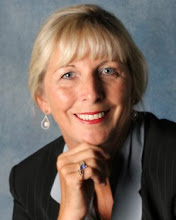Before Michael Pollan, and King Corn, the current Deputy Secretary was full of criticism for agriculture as we know it
When the Senate Agriculture Committee held a hearing to consider the nomination of Kathleen Merrigan to be Deputy Secretary of Agriculture, we heard most of the niceties you would expect for someone who used to be a staff member there. Her former boss, Sen. Patrick Leahy (D-VT), offered glowing words of praise, as did most other committee members. Only Sen. Saxby Chambliss (R-GA) seemed to probe a little deeper into her past support for organic agriculture, asking whether or not she could be able to represent all of agriculture if confirmed to be the number two political leader at USDA.
Sitting on the sidelines at that same hearing were folks keeping their fingers crossed, hoping and praying that no one would ask about a little known chapter that Merrigan had written as part of a book, “Visions for Agriculture,” published in 1997. In that highly inflammatory chapter, Merrigan took a stab at almost every traditional interest group in agriculture, as well as the Senate Agriculture Committee, whose members she now needed to vote for her confirmation.
In short, she would have had some explaining to do.
But no one seemed to have read that little known piece of work, and no one asked....at least until now. We published several excerpts from the piece on www.Agri-Pulse.com
Read “This is not your father’s (or your mother’s) USDA,
http://www.agri-pulse.com/DownloadLogin.asp?Name=201002102SW1.pdf (subscriber only) It’s a straight up piece, that you can read and form your own opinion.
“The future of U.S. agriculture depends on reinventing government according to three principles: regulation, diversity, and democratic decision making. These principles will help farmers by ensuring market access and environmental stewardship…….To attain my vision of U.S. agriculture, we must undergo a disruptive period of heavy-handed government reforms, followed by a true partnership between the public and private sectors,” Merrigan wrote while she was a senior analyst for the Henry A. Wallace Institute for Alternative Agriculture, a Washington, DC-based organization which promotes research and education in sustainable agriculture.
She went on to bash almost every traditional commodity and interest group that has influenced agricultural policy for the last several decades and called for major changes in cropping patterns. Hardly any ox remained ungored.
In this week’s Open Mic interview, we asked Merrigan about her focus at USDA and tried to provide a better understanding of her role. To listen, go to www.Agri-Pulse.com or to download on your PDA, click here:
http://www.agri-pulse.com/uploaded/OpenMic020810.mp3
But now, lots of folks are reading that chapter and wondering: What else should we know about the Deputy? And what else don’t we know about the new agenda at USDA?
We have asked our readers to read and react. Let us know your thoughts on how USDA is doing.
Agriculture News, Farm Policy, and Rural Policy
#30
Friday, February 12, 2010
What else are we missing about Deputy Merrigan?
Labels:
agriculture,
environmental,
farm,
Merrigan,
sustainability,
USDA
Subscribe to:
Post Comments (Atom)

There are a few other things you should know about the Deputy. She is bright, articulate, hardworking, extremely fair-minded, and a dogged advocate.
ReplyDeleteThe article and the excerpts from a chapter in a 13 year-old book suggest that the Deputy Secretary had something to hide, that her previously published works were not known, and that she has a secret agenda.
While I was not involved at any level in the Deputy's confirmation, I have been involved in past confirmations conducted by the Senate Committee on Agriculture, Nutrition and Forestry. There are usually few stones left unturned. Unless you know that the committee was completely unaware of this specific document, I wouldn't jump to the conclusion that you are the first to read it. And it is a bit self-serving to post a blog advertising your own article as a "straight-up piece" while only including the most controversial excerpts from the chapter.
Second, among other distinct qualities, the Deputy Secretary has never had a secret agenda. Her commitment to a sustainable culture in U.S. and world agriculture runs deep and wide and is certainly not news. Her penchant for challenging conventional wisdom and conventional agriculture is also well-known. I hope she keeps it up.
However, what may not be as well-known is her sense of fairness and her policy-making sensibilities. I can assure you that if, within the tall walls of USDA, the Deputy senses that any component of U.S. agriculture has been left out of a policy decision or discussion, she will either ensure their position is heard or she will argue their side herself. She has been attacked from the left and from the right, so she is used to it. She also knows most of the arguments from both sides quite well.
Before she was involved in writing a chapter in the 13-year old book that is the subject of the article, while she was a staffer with the Senate Agriculture Committee, the Deputy Secretary, as a part of a hearing on biotechnology in production agriculture, wanted to have a discussion about weed resistance to glyphosate. The reaction from conventional agriculture was strong and unyielding -- she was told such a concern only reflected her radical, left-wing agenda. Glyphosate resistance was fantasy. Time has born out her instincts. We now have a resistance problem we can only wish we had paid closer attention to from the beginning.
The Deputy Secretary may not act or sound like your father's Deputy Secretary, but she will represent all of agriculture and she will ensure that each significant policy debate is sensitive to agriculture's many perspectives.
Thanks for the opportunity to comment.
William A. Gillon
Gillon & Associates, PLLC
Collierville, TN